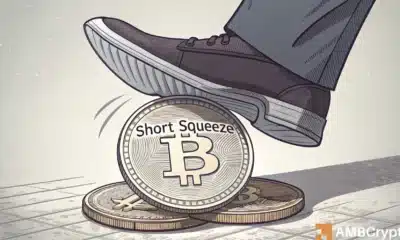Why India’s crypto tax burden may not ease before 2 years

- The imposition of TDS tax significantly drove Indian investors away from local crypto trading platforms.
- In the face of regulatory uncertainty, some crypto entrepreneurs have opted to explore international opportunities.
India’s digital asset landscape faces uncertainty as the prospect of a more favorable crypto tax regime may remain distant for up to two years, according to the CEO of Indian cryptocurrency exchange WazirX.
Last year, Indian authorities introduced a 1% tax on crypto transactions, known as TDS (Tax Deducted at Source). This tax imposition led to a sharp decline in trading volumes across domestic exchanges.
In fact, one of WazirX’s primary competitors attributed a staggering 97% drop in exchange volumes to this tax in just a span of ten months.
In an interview with BNN Bloomberg, Nischal Shetty, the CEO of WazirX exchange, stated,
“I don’t think we’ll see any immediate reduction in TDS since there have been no formal discussions between the industry and lawmakers specifically around it.”
India has urged for a globally coordinated approach to cryptocurrency regulations, seeking assistance from institutions like the International Monetary Fund.
Shetty expressed hope that India might take steps toward a more crypto-friendly policy. As of now, there has been no response from the Finance Ministry regarding these issues.
India’s tech prowess lures crypto giants
However, amid the challenges, India’s longstanding reputation as a hub for software and information technology engineering continues to attract digital asset firms.
Coinbase Global Inc., for example, emphasized that it maintains a robust tech presence in the country, employing hundreds of people. Similarly, Gemini, another U.S.-based platform, announced plans to establish an engineering hub in India back in April.
Furthermore, the Reserve Bank of India is advancing with the development of a digital rupee. In July, Deputy Governor T. Rabi Sankar reported that approximately 1.3 million customers and 300,000 merchants were already using the digital currency.






